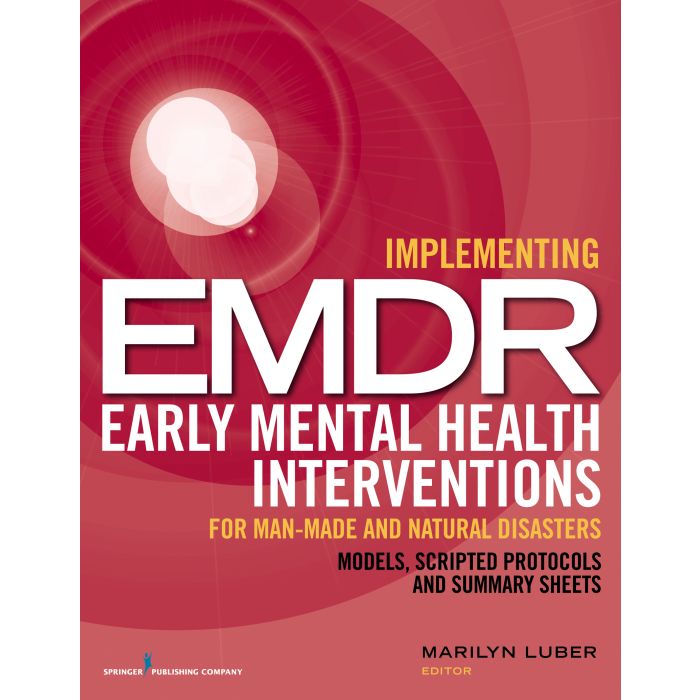A network meta-analysis of psychological interventions for children and adolescents after natural and man-made disasters
This review used a meta-analysis approach to compare and rank psychological interventions for PTSD and depression in children and adolescents after exposure to natural and man-made disasters.
Article Abstract
“Introduction: Children and adolescents, after natural and man-made disasters, often exhibit various psychological, emotional, and behavioral issues, showing a range of clinical symptoms related to post-traumatic stress disorder (PTSD) and depression. This review used a network meta-analysis (NMA) approach to compare and rank psychological interventions for PTSD and depression in children and adolescents after exposure to natural and man-made disasters.
Methods: Randomized studies of psychosocial interventions for PTSD and depression in children and adolescents exposed to natural and man-made disasters were identified. PTSD and depression symptoms at postintervention and 1–12 month follow-up are the outcomes. The standardized mean differences (SMDs) between pairs of interventions at postintervention and follow-up were pooled. Mean effect sizes with 95% credible intervals (CI) were calculated, and the ranking probabilities for all interventions were estimated using the surface under the cumulative ranking curve. Study quality was assessed with version 2 of the Cochrane risk-of-bias tool for randomized trials (RoB 2).
Results: In total, 26 studies with 4331 participants were included in this NMA. Eye movement desensitization and reprocessing therapy (EMDR) (SMD = − 0.67; 95% CI − 1.17 to − 0.17), exposure therapy (ET) (SMD = − 0.66; 95% CI − 1.11 to − 0.22), and cognitive behavioral therapy (CBT) (SMD = − 0.62; 95% CI − 0.90 to − 0.34) were significantly more effective for PTSD at postintervention than inactive intervention. EMDR (SMD = − 0.72; 95% CI − 1.11 to − 0.33) and ET (SMD = − 0.62; 95% CI − 0.97 to − 0.27) were associated with a higher reduction in PTSD symptoms at follow-up than inactive intervention. EMDR (SMD = − 0.40; 95% CI − 0.78 to − 0.03) and play therapy (PT) (SMD = − 0.37; 95% CI − 0.62 to − 0.12) were significantly more effective for depression at postintervention than inactive intervention. For all psychological interventions in reducing depression symptoms at follow-up compared with inactive intervention, the differences were not significant.
Conclusion: EMDR appears to be most effective in reducing PTSD and depression in children and adolescents exposed to natural and man-made disasters. In addition, ET and CBT are potentially effective in reducing PTSD symptoms at postintervention, while PT is beneficial in managing depression symptoms at the treatment endpoint.”
—Description from publisher
Article Access
Open Access
Xie, Y., Zhu, X., Wang, L., Wan, Z., Yang, J., Su, C., Duan, S., Xu, C., & Kan, B. (2024). A network meta-analysis of psychological interventions for children and adolescents after natural and man-made disasters. BMC Psychiatry, 24: 468. Open access: https://doi.org/10.1186/s12888-024-05924-8
About the Journal
“BMC Psychiatry is an open access, peer-reviewed journal that encompasses a wide range of topics, including psychopharmacology, psychotherapy, and psychosocial approaches to psychiatric disorders, as well as genetics, pathophysiology, and epidemiology research.”
—Description from publisher
Date
June 25, 2024
Creator(s)
Yu Xie, Xiang Zhu, Lijun Wang
Contributor(s)
Zhendong Wan, Jiyu Yang, Chen Su, Shuyu Duan, Chenxi Xu & Binbin Kan
Topics
Depression, PTSD, Tragedies
Client Population
Adolescents, Children
Practice & Methods
Comparative Studies
Extent
16 pages
Publisher
Springer Nature
Rights
© The Author(s) 2024. Open Access This article is licensed under a Creative Commons Attribution 4.0 International License, which permits use, sharing, adaptation, distribution and reproduction in any medium or format, as long as you give appropriate credit to the original author(s) and the source, provide a link to the Creative Commons licence, and indicate if changes were made.
APA Citation
Xie, Y., Zhu, X., Wang, L., Wan, Z., Yang, J., Su, C., Duan, S., Xu, C., & Kan, B. (2024). A network meta-analysis of psychological interventions for children and adolescents after natural and man-made disasters. BMC Psychiatry, 24: 468. Open access: https://doi.org/10.1186/s12888-024-05924-8
Audience
EMDR Therapists, Other Mental Health Professionals
Language
English
Content Type
Article, Meta-analyses/Systematic Reviews, Peer-Reviewed
Access Type
External Resource, Open Access




